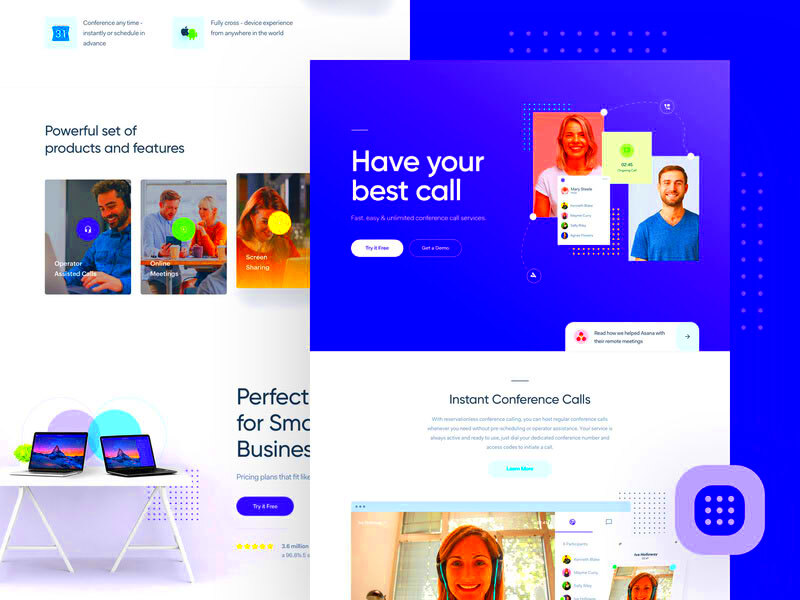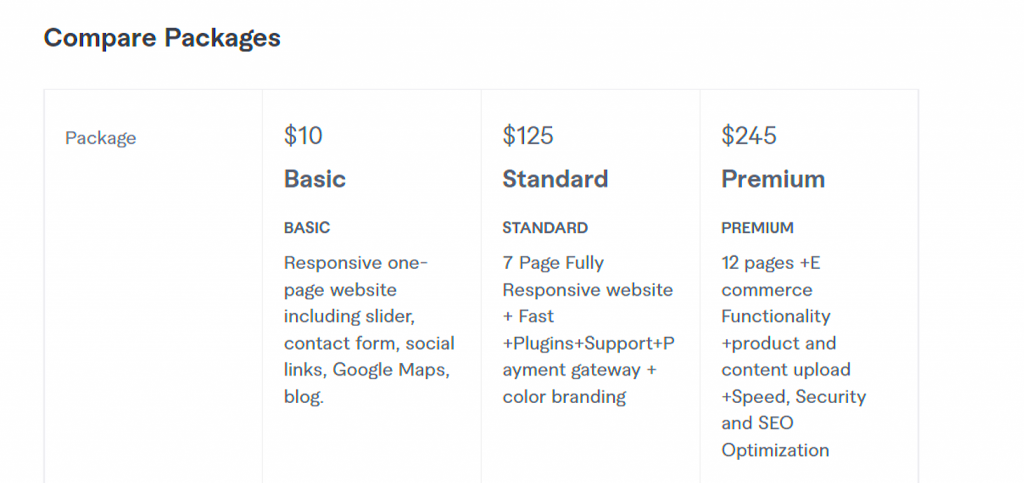When it comes to building a website, hiring a freelancer can often be a more flexible and cost-effective choice. Freelancers offer a range of pricing options and expertise, making it possible to tailor a project to fit various budgets and requirements. However, understanding what factors affect these charges is essential for making informed decisions and avoiding unexpected costs. In this section, we’ll look at some basics to help you navigate the world of freelance website project charges.
Factors Influencing Freelance Website Project Costs

Several factors play a role in determining the cost of a freelance website project. Being aware of these factors can help clients set realistic budgets and understand what goes into a fair quote.
- Project Scope: Larger projects with more pages or complex features will generally require more time and expertise, increasing the overall cost.
- Design Complexity: A simple, clean design is more affordable than a highly customized, interactive design that requires extensive coding and creativity.
- Functionality Requirements: Websites with advanced functionality, such as e-commerce or interactive elements, involve more technical work and can lead to higher costs.
- Freelancer’s Experience: Highly experienced freelancers or those with specialized skills often charge more due to their expertise and proven track records.
- Geographic Location: Freelancers from regions with higher living costs may charge more than those from areas where the cost of living is lower.
Each of these factors can influence a freelancer’s rate. Clients should assess their needs carefully to balance quality with cost-effectiveness.
Also Read This: Is It Easy to Get Gigs on Fiverr?
Common Pricing Models in Freelance Website Development

Freelancers use different pricing models based on the nature of the project and client preferences. Here are the most common ones:
| Pricing Model | Description |
|---|---|
| Hourly Rate | Freelancers charge for each hour worked, suitable for projects with flexible requirements. Rates vary widely based on experience and location. |
| Fixed Price | A set fee is agreed upon for the whole project, often used for well-defined projects with clear timelines and deliverables. |
| Retainer Model | The client pays a regular fee for ongoing support or development work. This model suits businesses needing continuous updates or maintenance. |
| Milestone-Based Pricing | Payment is divided across project phases, allowing clients to review work at various stages and pay progressively as each milestone is completed. |
Understanding these models can help clients choose the best fit for their project’s needs and budget, ensuring smoother collaboration and clear expectations.
Also Read This: How to Buy Traffic on Fiverr
Average Charges for Basic Website Projects

For those looking to establish a simple online presence, basic website projects are usually the most affordable option. These projects typically cover the essentials like a homepage, an about page, a contact form, and perhaps a blog or portfolio section. Freelancers often charge lower rates for such straightforward sites, as they require less customization and complex coding.
Below are some typical price ranges for basic website projects:
- Simple One-Page Website: $200 - $500, ideal for personal profiles or basic business information.
- Multi-Page Informational Site: $500 - $1,000, suitable for small businesses, showcasing services, or blogging.
- Basic E-commerce Site: $1,000 - $3,000, including product listings, shopping cart functionality, and a basic payment system.
These prices can vary widely based on the freelancer’s location and experience, but this range provides a general idea of what to expect for a basic website project. Choosing a freelancer who specializes in simple websites can also help keep costs down without compromising quality.
Also Read This: Top 10 Fiverr Gigs for Architectural Design in 2024
Costs for Advanced Website Features
When a website requires more than just the basics, costs increase due to the extra time and skill involved. Advanced features can enhance user experience, drive engagement, and meet specific business needs, but they do come at a higher price.
Here’s a look at some popular advanced features and their potential costs:
| Feature | Estimated Cost | Description |
|---|---|---|
| E-commerce Functionality | $1,000 - $5,000 | Includes shopping cart, checkout process, and payment gateways, essential for online stores. |
| Custom Database Integration | $1,500 - $6,000 | For dynamic sites that need to store, retrieve, and manage data (e.g., customer accounts, product databases). |
| Interactive Elements | $500 - $2,000 | Features like animations, sliders, or interactive forms to improve user engagement. |
| Advanced SEO Optimization | $300 - $1,500 | In-depth SEO services to help improve search engine rankings and organic traffic. |
Each of these features requires specific technical knowledge and time, which is why prices vary so widely. Communicating clearly about desired functionalities with a freelancer helps in receiving accurate quotes and staying within budget.
Also Read This: Top 10 Fitness Instructors on Fiverr in 2024
How Project Complexity Impacts Pricing
The complexity of a website project is one of the biggest factors in determining its cost. The more complex a project, the more time, resources, and skill are required, resulting in higher fees. Complexity can stem from various elements, such as the number of features, the degree of customization, and the level of interactivity.
Here are some aspects that add complexity:
- Custom Design: Fully customized designs tailored to brand identity and user preferences take more time than using pre-made templates.
- Multiple Integrations: Complex sites often require integration with external platforms like CRM systems, email marketing, or payment services.
- Responsive and Mobile Optimization: Ensuring the website functions smoothly across all devices requires extra effort, especially if different layouts or interactive features are needed.
- Security and Compliance: Sites dealing with sensitive user data or payments require heightened security measures, which involve additional setup and ongoing maintenance.
As a project grows in complexity, freelancers may increase their rates to reflect the added time and expertise involved. Clients should weigh their needs against the cost and decide which elements are essential and which can be simplified to fit the budget.
Also Read This: How to Post a Project on Fiverr
Ways to Find Affordable Freelance Website Developers
Finding an affordable and skilled freelance website developer can feel challenging, but there are several ways to connect with talented professionals who fit within your budget. Here are some effective strategies:
- Use Freelance Platforms: Websites like Fiverr, Upwork, and Freelancer allow clients to browse profiles, read reviews, and compare rates. You can post your project and receive proposals from freelancers at various price points.
- Check Online Portfolios: Many freelancers display their work on platforms like Behance or Dribbble. Browsing these sites can give you a good idea of their style and skill level before reaching out for a quote.
- Ask for Referrals: Word-of-mouth recommendations from friends, colleagues, or business contacts can lead to trusted freelancers who may offer discounts or flexible pricing for referred clients.
- Consider Newer Freelancers: Freelancers who are just starting out often offer lower rates to build their portfolios. Many new developers still produce high-quality work and are motivated to prove themselves.
- Negotiate Project Scope: If a preferred freelancer’s rates are slightly higher, consider reducing the project’s scope. You can always add more features later, once you’ve established a working relationship and budget.
Affordable freelance developers are out there—it just takes a little research and negotiation. By exploring these options, clients can find a good match without overspending.
Also Read This: Whatâs a Nudge on Fiverr?
Frequently Asked Questions about Freelance Website Project Charges
Clients often have questions about how freelance website project costs are determined and how to get the most value from their investment. Here are some common FAQs:
- What is a typical hourly rate for a freelance web developer? Hourly rates vary widely, ranging from $20 for beginners to over $150 for highly experienced developers. Location and expertise often affect these rates.
- Is it cheaper to hire a freelancer or an agency? Freelancers generally charge less than agencies, as they have lower overhead costs. For smaller projects, freelancers can be a cost-effective choice.
- How can I avoid hidden fees? Ensure all project details are clear before starting. A contract with a detailed scope of work, timeline, and pricing helps avoid unexpected charges.
- What payment options are common in freelance work? Many freelancers use milestone-based payments, requiring partial payment at different stages. Others may request an upfront deposit with the remainder due upon project completion.
- Can I reduce costs by providing my own content or images? Yes, having ready-to-use content, images, or even a clear design outline can help reduce time and, therefore, the cost of the project.
These answers should help clarify the pricing landscape and make budgeting easier for your next website project.
Conclusion for Freelance Website Project Costs
Understanding the costs of freelance website projects helps clients make informed decisions that align with their budget and business needs. Freelancers offer a range of pricing models, and costs can vary significantly based on project scope, required features, and developer experience.
While basic websites are generally affordable, adding advanced features or handling complex requirements can drive up costs. Clients should weigh their project goals carefully and communicate openly with freelancers to ensure clear expectations on both sides.
By exploring different freelance platforms, comparing profiles, and asking the right questions, clients can find skilled developers who fit their budget. A well-structured contract and an agreed-upon pricing model will also help to create a smooth, transparent project experience.
With these insights, you’re well-prepared to start your search for a freelance web developer and build a website that meets both your needs and budget.




